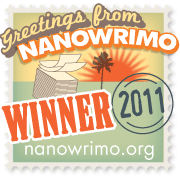This post stems off of my post last week. Judging from the comments I received, the majority of us all have a book with which we are struggling. An important, meaningful story that we are driven to tell, and it seems to be the story that is the most difficult to write.
This led me to wondering about published authors. More to the point—famous, world-renowned, successful, published authors.
Did they ever struggle over one of their books? Did that book ever make it to print, or does it still beckon from the depths of a desk drawer? Or even, is there a successful author out there who wrote an AMAZING book—so amazing that nothing else he or she has written, before or since, can possibly compare? Or is there a great book out there written by an author who has never written anything else?
When I debated these questions, I immediately thought about my favorite book of all time. To Kill a Mockingbird. Harper Lee never wrote another novel after Mockingbird. Now, I don’t know if that’s because she didn’t want to, or she tried to write another novel and gave up, or if that one book fulfilled her every want and need to be a writer. But I have to wonder, was Mockingbird the one that said and did it all for her? Was that the book she was meant to write?
Can you think of any authors who have written one amazing book and fallen short with all others? Or who never wrote again? Do you think that one book was THE book for that author? Can you think of any authors who are wonderful but still haven’t reached their peak, still aiming for that one book that they were meant to write?



